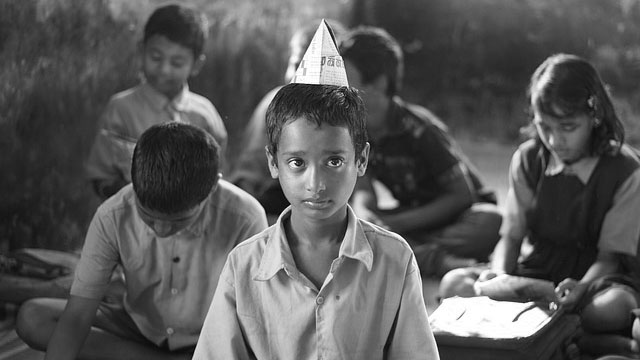As the country decides to adopt the new educational policy, it is to be comprehended as a radical step, since education decides the future of the nation, the destiny of its people. The impact will be a long-lasting one; the choices and journeys and destinations of individual citizens and the nation will be collectively shaped by these policy decisions. So, what will change in our education system? I have looked at the draft National Educational Policy 2020 (NEP 2020) for this brief analysis.
As an academic, it was greatly disappointing to read the NEP 2020 since I realised it to be deeply flawed because it imagined a nation that seeks to ignore its diversity and plurality as well as the socio-economic disparities that we are yet to address. The policy also failed to understand the educational system currently in place and demanded new structures which require huge financial commitments in the form of infrastructural requirements. Yet no mention is made as to these major issues in the policy statement.
India is a country that cannot be considered as a unified system; its diversity is its identity, its strength and an education system that seeks to ignore it will be disastrous. Higher education with its multiple levels of educational institutions that cater to the needs of the Indians who belong to different parts, different cultures, and come from different socio-economic backgrounds is the strength that I am speaking about. It is not a fragmented system, it is a decentralised system that helps reach the millions that live across the country. The NEP 2020 envisages a strongly centralised system––the National Education Commission––which will be headed by the prime minister.
Higher education should be multidisciplinary and interdisciplinary. But the process of centralisation that this policy envisions will lead to a severe stranglehold on academic freedom and independence.
Being a member of the faculty at the higher education level, I wish to focus on the policy statements regarding higher education.
1. How can there be teaching without research at a higher education level? If teachers are to be updated in their knowledge, research must be mandatory. The NEP 2020 will create different categories of teachers, some focusing on research and the rest on teaching. Will this categorisation help in the teaching-learning process, especially at the level of higher education where the teacher is expected to be imparting knowledge that goes beyond the prescribed texts?
2. The NEP 2020 envisions increasing privatisation of Indian higher education, which is dangerous and will make higher education lose its quality of equitable growth. When affiliated colleges are asked to be autonomous, the question of funding must be addressed. How is it envisaged? Can there be philanthropy without concerns about the commodification of education?
3. The whole focus seems to be India-centred education when from the ancient times, we have always reached out to the world. We have evidence of ancient Indian scholars interacting with Persian scholars and enriching themselves through such interactions. Yet, now the focus seems to be to turn towards Indian knowledge to a large extent, thereby closing ourselves to the rest of the world. Having students from abroad study in India, is a good prospect, but the focus should be on greater interaction and exchange of students.
4. Yoga is mentioned to be a part of Liberal Arts education. Along with Yoga, institutions and students should have the choice to pick other similar systems as well.
5. Doctoral candidates are to learn an Indian language. A doctoral study should be intensive and focus on the topic of study and learning new languages should not be part of the PhD.
6. What are the fields of national importance? This is a major flaw in this policy statement. No government should be given the authority to decide on what the topics of research should be. It is always ignorance that leads to conflicts. Efforts should be made to study and understand every phenomenon that manifests themselves around us. Academic freedom should not be compromised at any level.
8. For undergraduate programmes, admission to public higher education institution will be through an assessment. Then what about private ones? Will they conduct separate tests? The policy envisions a deeply divided society, divided by access to education at all levels, which cannot happen.
9. A major flaw in the NEP 2020’s statement is its utter disregard for gender and related issues in the higher education segment. Neither is there any mention of the disabled community nor of the socially underprivileged classes. Is higher education expected to cater to the hegemonic classes alone?
10. For teachers, the probation period can be of five years, or more, or less, thus giving freedom to the institutions to decide on the process of confirming tenure, which can be detrimental to the academic freedom of the teachers. This is problematic since regulatory authorities will have no role in matters related to this. How can we ensure a free and fair environment for the faculty members to perform well?
This NEP 2020 envisions a centralised system where India’s plurality regarding geographical, cultural and religious diversity, is totally ignored and steps to remove education from the public to the private realm are being made. The policymakers imagine greater coherence through centralized structures of power. It is absolutely necessary to devolve more power, be sensitive to the needs of the states and the multifarious people with their diverse cultures and knowledge patterns so that the nation respects the voices of dissent and the young ones are taught to be brave and fearless, as a true Indian.
Swapna Gopinath is a Fulbright fellow at the Department of Art and Art History, University of Rochester, NY. She is an Associate Professor of English Literature from Kerala, India. She writes about India, its visual cultural practices and the politics of urban spaces.

